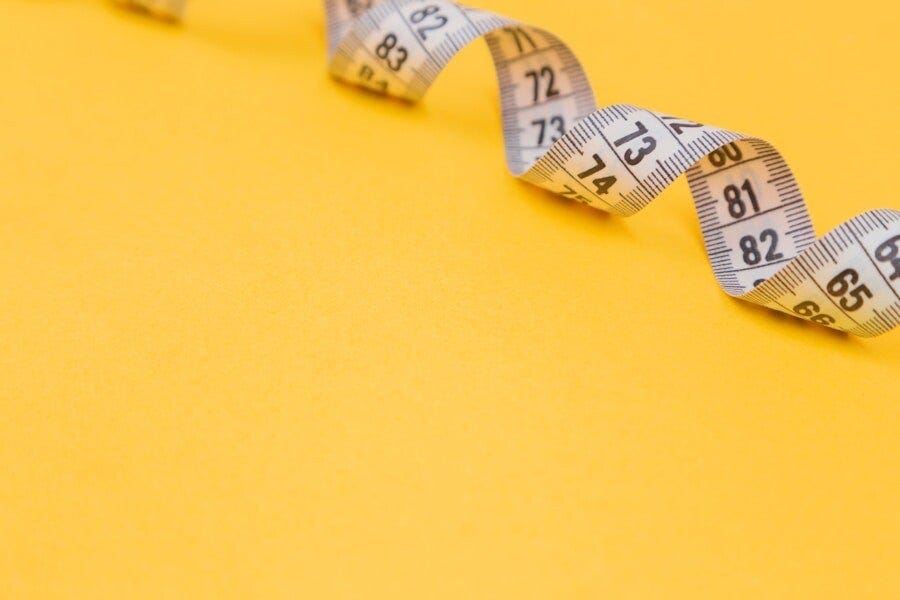
The average person who loses weight often witnesses the scale simply stop moving or even go back up (after weeks or months of moving down) causing undue stress on what can easily turn into a frustrating plateau.
But, just as importantly, you need to be prepared when your weight loss plateaus, accept it as part of the process, and consider it challenge and education.
Having empathy and awareness about the plateau is one thing — recognizing it and then doing something to get around it entirely another Another way to work past the plateau is to practice ‘mindless eating’. According to some research mentioned by Mehmet Oz, mouthfuls — even of plain water — can fool the metabolism into thinking you ate something. So chewing on carrot or celery sticks can trick your body into thinking it has received sustenance.
The Plateau: What it is and Why it Happens
A weight loss plateau is a time when one is losing little or no weight despite continued weight-loss efforts.
This can be extremely frustrating as it feels like nothing is working.
Plateaus often happen because we’ve acclimated to whatever changes we’ve made to the mix, such as a cut in calories or an uptick in activity.
Once this occurs, the body more efficiently uses energy and can slow the pace of weight-loss efforts.
The Role of Metabolism in Weight Loss Plateaus
Metabolism plays a crucial role in weight loss and can also contribute to plateaus.
A metabolism is the set of chemical processes by which foodstuffs are combined with oxygen to release energy, as in living beings.
This will mean that the person is losing more calories than they’re consuming each day, and as stored fat is used for energy, the person will lose body weight.
But the longer the body stays in this calorie shortage, the more it might slow down its metabolism to conserve energy.
There are also common myths about metabolism and fat loss that can lead to plateaus.
In particular, consider the following: Reducing the amount of calories one consumes is commonly perceived as a means through which one may accomplish a state of lower body weight.
And although this may be the case in the short term, the body could respond by altering its metabolism to compensate for the reduced calories.
Also, some people have naturally faster metabolisms, so for them losing weight is tougher.
Common Mistakes that Can Stall Your Progress
Some common errors committed on the road to weight loss that can hinder you and lead to plateaus.
One common mistake is not tracking food intake accurately.
You might scoop out a smaller portion than you think you have, or forget to log certain foods that add up to calories throughout the day.
Another is solely relying on the scale for tracking progress; weight can fluctuate (from excessive water retention to muscle growth). Another mistake is skipping meals — yes, you might end up closing your calorie deficit, but you also spent the time getting four hours ‘hangry’ and five minutes stuffing your face in the cafeteria. The key here is to track what you can — everything from blood pressure to mood to gut health! — to find a system that delivers real health over the long run.
Another common error is failing to adjust calories and exercise as weight loss progresses — people often need fewer calories, or different types of exercise, to continue losing after the initial fast start.
In addition, a large number of people eat too few calories, which slows metabolism and saps energy.
To avoid these mistakes and continue to hone your progress, track your calories and weigh foods accurately, measure progress with metrics other than the scale, adjust calories and your exercise regimen on a weekly basis, and avoid ultra-restrictive calorie levels altogether.
The Importance of Consistency in Your Weight Loss Journey
An important step for ‘getting off the plateau’ is to stay consistent. When you are trying to lose weight, you need to continue dieting and exercising in consistent ways over the long term (months).
In other words, to eat a consistent meal pattern, make healthy food choices and engage in regular physical activity.
One way to stay consistent with diet is by meal planning and prepping.
It entailed every week making a plan for our meals and snacks and then preparing them in advance.
This prevents food decisions made on a whim, and can also make a sensible eating plan easier to stick to.
When it comes to exercise, consistency is also critical, as you work towards a goal of a minimum of 150 minutes of moderate-intensity aerobic activity during a week and, ideally, at least two sessions of strength training exercises per week. Consistency in achieving these exercise goals hinges on finding activities that you enjoy and can sustain for the long haul.
The Power of Mindset: Overcoming Mental Blocks
Hidden in mindset, I see, there is the key to keep an upward trajectory with the weight loss — even through the dreaded plateau.
Unconscious negative thoughts and beliefs can cause a sense of slow progress and make it harder and harder to stay motivated and hang in there since the person begins to believe that ‘it’s just not going to happen.
One is to set realistic goals — ‘I want to be able to run one mile non-stop by the end of a month’ — and celebrate even small achievements en-route. The second is to practice self-compassion, and not be self-critical but kind to yourself.
Another strategy is to surround oneself with a supportive community.
This can be friends, family, or even online support groups.
Having a support system can provide encouragement, accountability, and motivation during challenging times.
How to Stay Motivated When the Scale Isn’t Moving
The scale might be telling you not to get disheartened — not because the progress is large, but because you are in the middle of a weight loss plateau.
Other, more productive methods you can use to get ahead and keep going when the scale isn’t budging.
One way is to measure all sorts of things, like waist and hip circumference, and notice if those are changing.
Taking progress photos is another good way to track improvement and see the changes. It’s easy for a beginner to be discouraged because they aren’t seeing changes in the mirror, but progress photos can illustrate how much you have actually improved.
But you can likewise track non-scale victories, such as more energy, deeper sleep or ability to button a smaller pair of pants.
Similarly, focusing on the health dividends of weight loss over the number on the dial makes sense.
Losing weight can help to lower blood pressure, cholesterol, and sugar levels in the blood. It can also decrease the risk of chronic illness and raise quality of life.
Keeping these benefits in mind can help one stay on track even when the scale fails to budge.
The Benefits of Strength Training for Breaking Plateaus
Strength training, which is an essential part of any weight loss program, in particular could help you smash the roadblock.
As lean muscle tissue helps to increase your metabolism and therefore burns calories throughout the day, strength training can aid in weight loss.
It can also help improve body composition, making individuals look more toned and defined.
Examples of strength training exercises to try include squats, lunges, push-ups, and deadlifts.
We suggest starting with lower (i.e., less intense) weights, and then increasing the intensity as strength improves.
Strive to do strength training at least twice a week, and employ all major muscle groups.
The Role of Sleep and Stress in Weight Loss
Sleep and stress can also play a role in your weight-loss journey and make you plateau at a certain point. Not getting enough sleep has been shown to disrupt hormones that regulate hunger and fullness, making you feel hungrier than you would with more sleep, and more likely to crave certain foods. Sleep loss can also negatively impact your metabolism to make it more difficult to lose weight.
Chronic stress also raises cortisol levels, and high cortisol makes it easy to pack on the pounds — and just as hard to shed them.
Things that can improve sleep quality include ensuring a regular bedtime schedule, making a pre-bed routine relaxing and comfortable, and designing the environment of the bedroom to be conducive for sleep.
Often it is also crucial to manage stress, which is an important contributing factor to overeating. The classic mantra of ‘Eat right and exercise’ applies equally to illness and weight loss. I have discovered the many benefits, including stress-reduction through relaxation, of meditation. Others find peace and calm in deep-breathing exercises, yoga or even celebrating happiness with their grandchildren.
The Impact of Hormones on Your Weight Loss Journey
Hormones are extremely important for some people to push through a plateau Hormones such as insulin, cortisol and leptin are all known to regulate appetite and metabolism, among other functions.
Insulin is a hormone that regulates blood sugar levels. Usually, when blood sugars spike because insulin levels are erratic, it can be hard to burn the kept fat for energy. That’s why regulating blood sugar is an integral part of managing weight gain or loss: when you eat balanced meals and exercise regularly, your blood sugars stay normal.
The stress hormone cortisol can increase appetite, and cravings especially for high-calorie, sugary foods. If you’re under a lot of stress, consider using stress-relieving techniques, like deep breathing, yoga or meditation or talking to support-system friends to help yourself manage cortisol levels, which can support weight loss.
The hormone leptin plays a role in controlling sensations of hunger and fullness. When leptin levels are low, this has been associated with increased appetite and overeating. A more balanced, which can be supportive for weight loss.
The Benefits of Tracking Your Progress
Keeping score can work wonders when you’re on the verge of a weight loss plateau by showing you what either helps or may need tweaking.
There’s myriad of of tools and tricks, from food journals and fitness apps, to taking body measurements and planning and taking progress photos.
Food journals can help you trace the number of calories you are consuming, your macronutrient ratios, and how you tend to overeat at certain times or at certain places.
For example, exercise activity can be tracked with a fitness app, calories burned can be monitored, and you can receive motivation and accountability if you have someone else checking in on your progress. Tracking body measurements can help determine changes in body comp, even if your weight isn’t moving on the scale. Progress photos visually display shape and size changes.
When to Seek Professional Help for Breaking the Plateau
In some cases, you might well need professional help to push past a plateau. This could include:
– Lack of progress despite consistent effort
– Feeling overwhelmed or frustrated with the weight loss process
– Difficulty sticking to a healthy eating plan or exercise routine
– Emotional eating or disordered eating patterns
– Persistent feelings of low self-esteem or negative body image
There are many registered dietitians, personal trainers, therapists, doctors, and more who can help offer guidance, support and accountability to break through a plateau and continue to achieve weight loss.
Weight loss plateaus are normal and discouraging, but as the plateau is understood and strategies are used to break it, people can go on to successful weight loss.
You must be persistent with your diet and exercise, remain upbeat and keep track of your progress in as many ways as possible. When necessary, seek a psychotherapist.
With hard work and persistence, people can push through those plateaus and meet their weight-loss goals.






